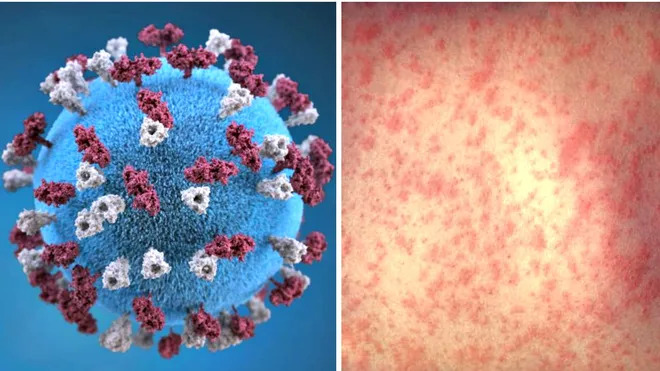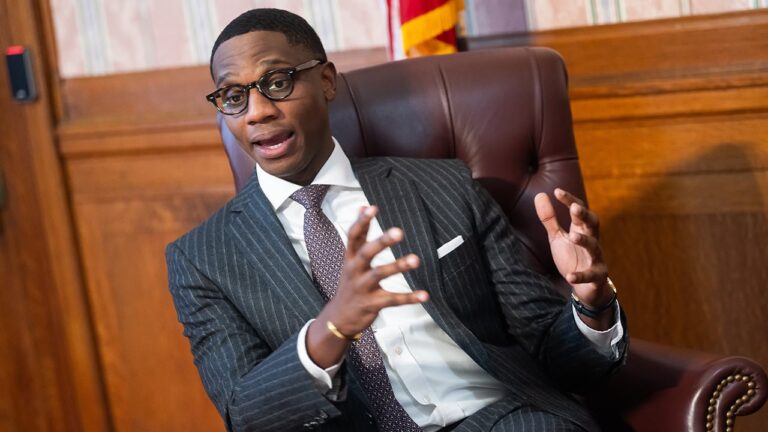
Robert F. Kennedy Jr. asked whether society should pay for the health care of Americans who eat doughnuts or smoke when they know those habits can contribute to poor health outcomes.
“If you’re smoking three packs of cigarettes a day, should you expect society to pay when you get sick?” the nation’s top health official asked in an interview released Wednesday with CBS News chief medical correspondent, physician Jon LaPook.
Kennedy went on to say that it is an American’s choice to “eat doughnuts all day” or drink sodas, and he promised not to take those choices away.
“But in terms of, should you then expect society to care for you when you predictably get very sick at the same level as somebody who was born with a congenital illness?” he asked. “The best answer to that is to realign our incentives so that the economic incentives, the individuals and the industry align with the public health outcomes that we desire.”
Public health experts were alarmed by Kennedy’s remarks, saying they suggest that Kennedy may limit access to health care based on personal behavior. They also come as potential cuts to insurance for low-income Americans, Medicaid, loom amid a push for deep budget reductions in Congress.
Though Kennedy did not explicitly suggest limiting Medicaid benefits for those engaging in behaviors deemed unhealthy, his comments could be interpreted as such, said Joan Alker, executive director and co-founder of the Center for Children and Families at Georgetown University. West Virginia limited Medicaid benefits in 2007 if patients did not follow healthy behaviors and sign a “personal responsibility” agreement — federal approval for that was withdrawn following Barack Obama’s election.
“Kennedy’s ideas are predicated on the notion of an extraordinarily intrusive government getting into every aspect of your lives,” she said. “Where does it stop? Is the government now going to say anybody who drinks any alcohol, since there’s more evidence coming out that that’s a carcinogen, anybody who eats any sugar?”
When asked about the secretary’s statements, the Department of Health and Human Services said in a written statement that Kennedy was committed to “empowering individuals with better options and to take control over their health — not shame.”
“Secretary Kennedy’s comments reflect a broader call for aligning public health outcomes with smart incentives — not for limiting anyone’s access to care,” the statement said.
Some private insurers try to incentivize people to work out or quit smoking with lower premiums or other incentives.
Kennedy’s remarks come in the wake of deep layoffs to his health department’s staff tasked with helping Americans quit smoking. Among the hardest hit programs were cuts to the Centers for Disease Control and Prevention’s office on smoking, which oversaw a long-running and successful campaign that featured tips from former smokers in commercials as well as funding smoking cessation work at the state and local level.
“It’s unclear how you can stop the flood of chronic diseases without turning off the faucet that is tobacco,” said a staff member in that office who was among about 120 people fired or retired, referring to Kennedy’s goals to combat chronic disease.
There were also sizable cuts to the Food and Drug Administration’s center charged with regulating tobacco products and educating the public about the dangers of tobacco. The center is entirely funded by fees the industry pays to the agency for its regulatory activities, so the layoffs don’t save taxpayers’ money.
Regina LaBelle, who served as a drug policy adviser under both Obama and President Joe Biden, said she was sad to hear Kennedy speak in such a way, calling it a “throwback to a time before we really understood the science, and when our main public health approach was shame and stigma.”
Kennedy’s cuts to career civil servants who were working on smoking cessation could undermine efforts to improve public health outcomes, said LaBelle, who is a professor of addiction policy at Georgetown University.
HHS said in its statement that the cuts were part of an effort to “prioritize long-term impact, reduce redundancy, and ensure resources are used effectively. All restructuring decisions are made with careful consideration and in collaboration with agency leadership.”
Michael Cannon, director of health policy studies at the libertarian Cato Institute, supported Kennedy’s push to stress more personal responsibility for Americans.
“The Constitution doesn’t say anything about health, much less doughnuts and cigarettes,” he said. “People should bear the cost of their own unhealthy decisions, not just because it’s wrong to force other people to bear those costs, but because then they’re less likely to make unhealthy decisions.”
But Robert Weissman, co-president of left-leaning watchdog group Public Citizen, said Kennedy’s statements reveal the hypocrisy of his views when promoting “Make America Healthy Again.” Kennedy, a vocal critic of weight-loss drugs, recently announced he would not be expanding access to them, citing their high price tag.
“You can’t have the view that big food is responsible for obesity and simultaneously say people who are dealing with obesity should not have their health care covered,” Weissman said.



